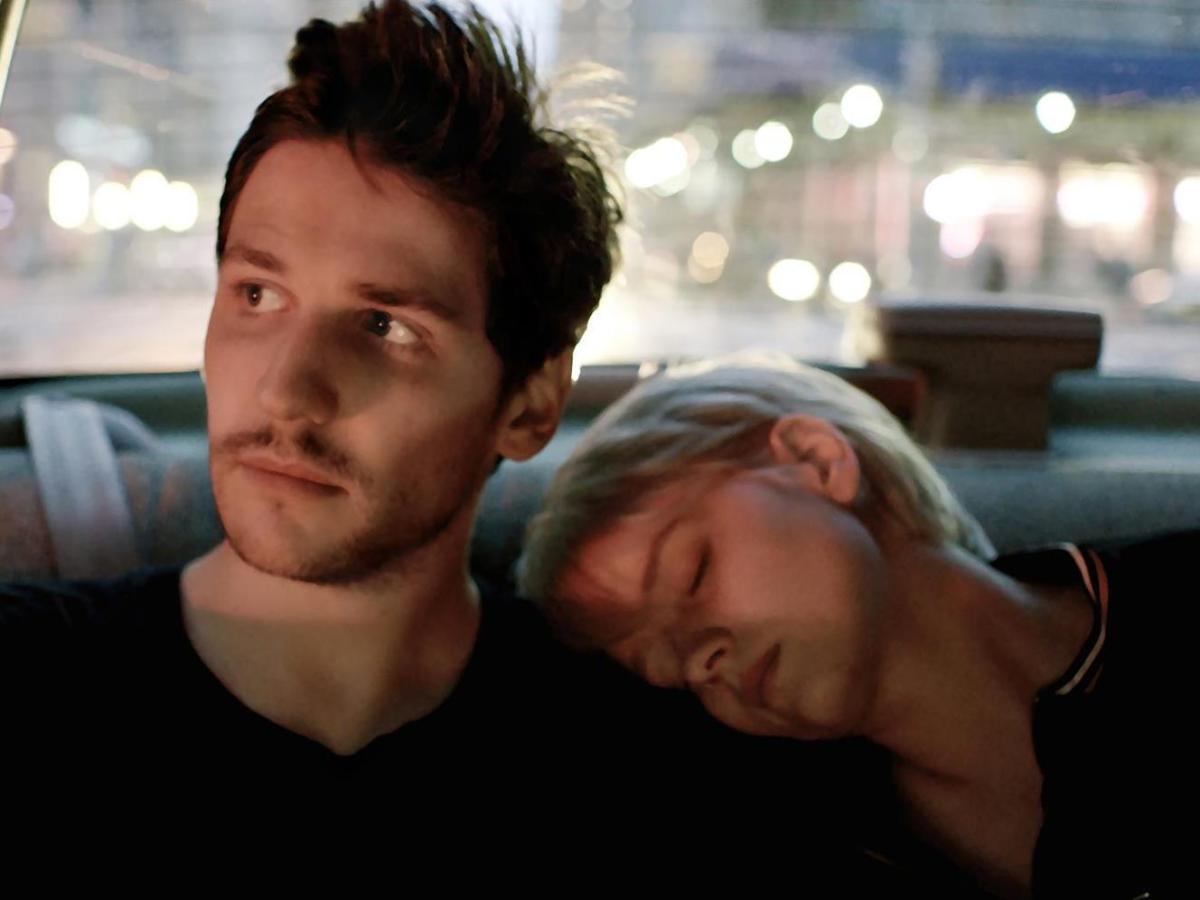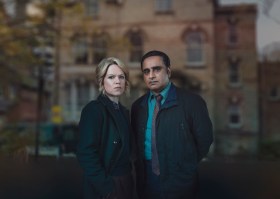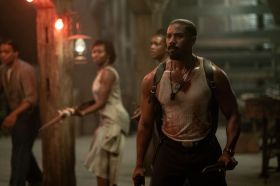Image: supplied
If there’s a tune playing or a beat thumping in Eden, and there almost always is, then someone is moving to it. As the film frames the nodding heads and waving arms of its ensemble of characters in close-up, music pumps through their veins, driving their fun and binding them in mutual tastes and experiences. The rush of the French electronica scene – specifically house and garage – is their lifeblood. It defines their identities, motivates their youthful aspirations, and shapes their worldviews. It’s the soundtrack to a dream that keeps Paul (Félix de Givry, After May) and his pals hurtling forward, even if their hopes and desires never take the leap they’re yearning for.
In idea as well as in aesthetic and acoustics, Eden is an effort concerned with chasing a dream but never beholden to it, aware of the starker truths more likely to eventuate yet still recognising the glimmers of beauty present in reality. As writer/director Mia Hansen-Løve’s earlier features Father of My Children and Goodbye, First Love did before it, the film states and shoots its narrative plainly and patiently though not dispassionately, absent overt melodrama but not emotion in its wide-eyed gaze. Here, it isn’t family or romance that fuels the story, but that existential endeavour to eke out a fulfilling niche during one’s lifespan. For many, it’s a quest that can never come to fruition, focus switching from succeeding to surviving by necessity.
So it is that circa 1992, literature-adoring teen Paul stumbles upon what will become the great love of his life, his mind opened to a new world of sound and the possibilities it brings. Over the 21 years that follow, he pursues a career in a Parisian club DJ duo with his friend Stan (Hugo Conzelmann, another After May alum). The path to achieving their aim shared with a like-minded group – including the Showgirls loving Arnaud (Vincent Macaigne, 2 Autumns, 3 Winters), brooding comic book artist Cyril (Roman Kolinka, Juliette), and on-again, off-again lover Louise (Pauline Etienne, The Nun) – and littered with parties, parental disapproval, money problems and a developing drug dependency.
In this evocatively observed assemblage of constant music, colourful nights and swaying movement, wins are fleeting, losses leave scars, and the continual struggle takes its toll. Though Paul’s tale is favoured – his pursuit of what he sees as perfection, the costs and the state of arrested development it leaves him in, as well as his romantic dalliances (as represented by Frances Ha‘s Greta Gerwig, Yves Saint Laurent‘s Laura Smet and Rosewater‘s Golshifteh Farahani) – the film’s plight is never his alone. Performances are as influential as the roster of songs, giving the ebbs and flows of the snippets of story flesh beyond the all-encompassing ambience. In an effort that willingly courts the atmospheric label, the casts’ abilities in turning every figure into more than a cypher, symbol or stock inclusion is vital – and realised.
Indeed, from the characters up, Eden pieces together a portrait of the surrounding scene with an insider’s understanding. A result of a semi-autobiographical script co-written by the filmmaker’s brother and real-life former DJ Sven Hansen-Løve, the feature is intimate yet universal all at once as it deals with events in ellipsis over two chapters. It is not quite accurate to say that Hansen-Løve and her cinematographer Denis Lenoir (Still Alice) wield the camera like a bystander weaving through the events that follow; however affording the movie a knowing vantage is crucial. Their perspective of witnessing turns the film into an account of the many ups and downs taken by one man, the ripples through his circle of friends, and the varying fortunes of the French music scene all in tandem.
Take the movie’s running gag, red herring and ostensible mainstream drawcard, thinly charting the origin and evolution of Daft Punk. Their presence (played by Jacky in the Kingdom of Women‘s Vincent Lacoste and Sweet Valentine‘s Arnaud Azoulay) and their hit music are threaded through Paul’s journey in parallel as a marker of what could be, and of how far he has to come. It’s a playful but pertinent and purposeful touch, far from kowtowing to celebrity or exaggerating their tangential involvement, but recognising that things work out for some and not others. Amidst the pervading pragmatism, their tracks give the film temporal and tonal touchstones, imparting sonic bursts of hope and liveliness the visuals joyfully mimic.
It’s a melange Eden is consistently cognisant of, and one perhaps best couched in its own words. In their many forays into broadening their footprint, Paul and Stan host an underground radio show, describing their preferred music style as a mix between “euphoria and melancholia”. That’s the sensation and sentiment Hansen-Løve ensures bounds off the screen in every well-chosen song underscoring the genesis of the period, each twinkle of eyes over turntables or on the dance floor, and even in the contrast between halcyon days of travel and parties versus the sobering intrusion of a more moderate lifestyle. Eden is a feature that has been there, done that, and come out the other side – and is now, with the music fading but never ending, it is taking its audience on that same snaking yet bittersweet ride.
Rating: 4.5 stars out of 5
Eden
Director: Mia Hansen-Løve
France, 2014, 131 mins
Alliance Française French Film Festival
http://www.affrenchfilmfestival.org/films.aspx
Sydney: 3 – 22 March
Melbourne: 4 – 22 March
Adelaide: 5 – 24 March
Canberra: 6 – 25 March
Brisbane: 13 March – 1 April
Perth: 19 March – 7 April
Byron Bay: 9 – 14 April
Hobart: 16 – 21 April
Actors:
Director:
Format:
Country:
Release:





